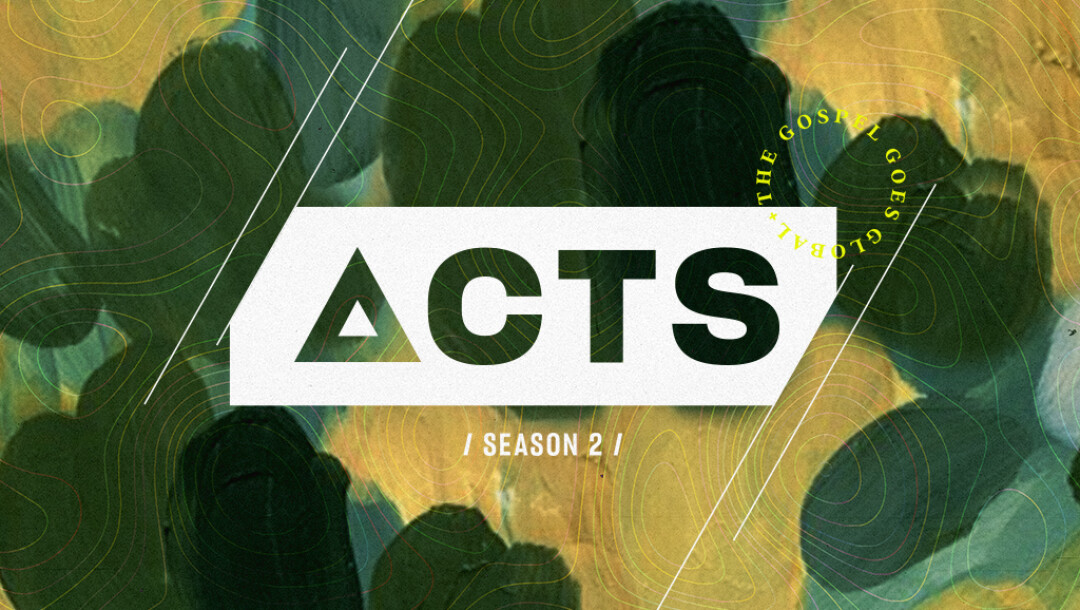
1. Open with prayer. (2-5 min)
2. Read Acts 8:26-40.
3. Discuss these questions with your group. (20-45 min)
MY STORY | Starting Place
How do the people in your circle of influence know, beyond a shadow of a doubt, that you identify with Christ? What are tangible ways you have shown your connection to God?
DIGGING DEEPER | Practical Biblical Application
Now an angel of the Lord said to Philip, “Rise and go toward the south to the road that goes down from Jerusalem to Gaza.” This is a desert place. And he rose and went. And there was an Ethiopian, a eunuch, a court official of Candace, queen of the Ethiopians, who was in charge of all her treasure. He had come to Jerusalem to worship and was returning, seated in his chariot, and he was reading the prophet Isaiah. And the Spirit said to Philip, “Go over and join this chariot.” So Philip ran to him and heard him reading Isaiah the prophet and asked, “Do you understand what you are reading?” And he said, “How can I, unless someone guides me?” And he invited Philip to come up and sit with him. Now the passage of the Scripture that he was reading was this: “Like a sheep he was led to the slaughter and like a lamb before its shearer is silent, so he opens not his mouth. In his humiliation justice was denied him. Who can describe his generation? For his life is taken away from the earth.” (Acts 8:26-31)
Describe the specific ways that the passage from Isaiah applies to Jesus.
The Ethiopian eunuch had a great deal of authority in the Queen’s court. What might have motivated this powerful and influential man to have questions about spiritual matters?
Apparently this court official was reading the book of Isaiah out loud, and so Philip asked him if he understood what he was reading.
Finish the following question in such a way that it might provoke a discussion about spiritual matters with a non-Christian ... “What is your understanding of [fill-in-the-blank]?”
How can you gauge a non-Christian’s interest in the Gospel? Generally speaking, where does that person need to be in order to be receptive to the Gospel? What are some possible signs of this? Is there anything you can do or say to get this person to that point (which will be unique to him or her)?
How can we turn conversations about cultural realities toward a spiritual direction? What do you need to be prepared for in doing so?
GROWING TOGETHER | Spiritual Friendship
And the eunuch said to Philip, “About whom, I ask you, does the prophet say this, about himself or about someone else?” Then Philip opened his mouth, and beginning with this Scripture he told him the good news about Jesus. And as they were going along the road they came to some water, and the eunuch said, “See, here is water! What prevents me from being baptized?” And he commanded the chariot to stop, and they both went down into the water, Philip and the eunuch, and he baptized him. And when they came up out of the water, the Spirit of the Lord carried Philip away, and the eunuch saw him no more, and went on his way rejoicing. But Philip found himself at Azotus, and as he passed through he preached the gospel to all the towns until he came to Caesarea. (Acts 8:34-40)
How do you think the eunuch knew about Christian baptism, and what it signified?
What can we presume happened with the court official during this conversation with Philip? What do you know about baptism and what it symbolizes?
Interact with this statement, “The cultural activity of ‘coming out’ parallels the biblical idea of baptism and identifying with Jesus”.
Identifying is SO important in our culture. How is “identifying with Jesus” lost when we do not express it publicly in our lifestyles beginning with baptism?
MOVING OUTWARD | Faith in Action
If you’ve been baptized, be ready to tell your group how you got to the point of taking that step. If you’re a believer and have not been baptized, make a plan with your group to take this step with their support.
Message Notes
You can add your own personal sermon notes along the way. When you're finished, you'll be able to email or download your notes.

